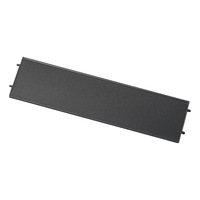1-component cold wood glue D4
Cold wood glue 1C D4
WOCLDGLU-1C-D4-WATT91-5KG
Art.-no. 0892100225
EAN 4099618253287

Register now and access more than 125,000 products
High level of heat and water resistance
- Tested D4 quality in accordance with DIN EN 204
- Meets the requirements of DIN EN 14257 (WATT91).
Easy to use
No mixing with hardener required. No pot life limitation to be observed.
Transparent hardening
No visible adhesive joints. Hardened glued joints are viscoplastic.
Due to the different composition of substances contained in wood, in individual cases, unpredictable discolouration can occur, e.g. in beech and cherry. In addition, iron in conjunction with the tannic acid in wood may cause colour changes in oak. The processing time and the setting time are heavily influenced by the working conditions (e.g. temperature). For outdoor applications, the glued section must be protected against the weather and provided with adequate surface protection (permanent protection against moisture ingress). Care must be taken to ensure that the glue is not exposed to direct sunlight outdoors due to its thermoplastic properties. Non-thermoplastic adhesives and PUR glue in a dosing system (0892100180) are suitable for applications with direct exposure to sunlight. Softening of the glue and shrinkage of the wood can lead to joint openings. The viscosity of 1-component D4 glues increases during the storage period. However, the processing parameters do not change as a result. Stirring without adding water makes it free-flowing again. Do not add water to the glue! Remove glue residue escaping at the joint, as this may cause red staining due to reacting with oxygen.
Datasheets(X)
For structural assembly, surface, board-joint and block gluing of soft wood, hard wood and exotic woods. For applications with increased water resistance requirements; indoor areas subject to frequent and long-lasting effects of draining water. Outdoors with adequate surface protection. Examples include bathroom furniture, gluing of interior doors and interior staircases, corner window joints, laboratory equipment. Likewise for gluing laminated profiles and profiles joined lengthwise using finger joints.
Glue is applied to one side thinly and evenly with an application tool, a glue roller, toothed spatula, brush etc. For more information, please refer to the technical data sheet.
Colour | White |
Chemical basis | Polyvinyl acetate dispersion |
Container | Bucket |
Weight of content | 5 kg |
Colour after curing | Transparent |
pH value | 3 |
Min. proportion of solids | 50 % |
Min. film forming temperature | 7 °C |
Min./max. open time /conditions | 8-10 min / at 20°C and 150 g/m² |
Max. temperature resistance of the hardened material | 80 °C |
Min. room temperature, material temperature and glue temperature | 18 °C |
Min./max. relative air humidity | 60-70 % |
Min./max. pressing pressure | 0.1-0.8 N/mm² |
Min./max. wood moisture | 8-10 % |
Min./max. wood moisture outdoors | 11-15 % |
Min./max. application quantity in assembly bonding | 120-180 g/m² |
Min./max. application quantity in surface bonding | 100-160 g/m² |
Shelf life from production/conditions | 9 Month / at > 0°C |
| Minimum pressing times* | ||
| For assembly gluing | at 20°C | 20–25 minutes |
| For board and block gluing | at 20°C | From 20 minutes |
| For surface gluing | at 20°C | 30–40 minutes |
| at 50°C | 8–10 minutes | |
| at 80°C | 2–8 minutes | |
| for veneer gluing** | at 20°C | 20–30 min. |
| at 50°C | 8–10 minutes | |
| at 80°C | 2–8 minutes | |
| * The minimum pressing times are for the application conditions specified above. Deviations from the application conditions may decrease or increase the pressing time. ** Due to the low pH value, veneer discolouration cannot be ruled out. | ||
Select RAL-colour code
!! NOTE: On-screen visualisation of the colour differs from real colour shade!!













